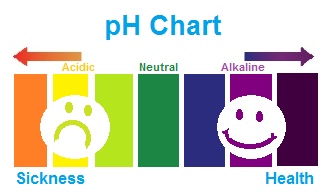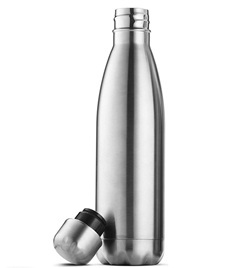This is the Alkaline Water Plus Water Ionizer FAQs Page
Actually our entire website is a huge FAQs website but on this particular page we have some of the very most common questions that people ask and their answers.
Q: Why are alkaline water machines (water ionizers) so expensive?
A: Electric water ionizers are more expensive because:
- They use pure titanium plates covered with medical-grade platinum (~$1500/oz).
- Design, electronics, fine workmanship and warranties are also quite costly.
- They ionize all the minerals naturally present in water (Ca, Mg, K).
- Non-electric ionizers only ionize magnesium, so they are less effective and cost less.
- If you compare alkaline water machines to medical equipment, or how much people spend on bottled water over the years, they're not expensive at all.
Read more about the cost of water ionizers.
Q: Why do water ionizers (alkaline water machines) use platinum-coated electrodes?
A: Platinum-coated electrodes are essential for water ionizers (alkaline water machines) because platinum is extremely durable and resistant to corrosion. Combined with titanium, it ensures the electrodes do not break down or leach into your alkaline ionized water over time, making them last virtually a lifetime. Platinum also acts as a catalyst in the electrolysis process, allowing water to be ionized instantly as it flows through the electrolysis chamber. Without platinum, a water ionizer would struggle to produce properly ionized alkaline water. Learn more about different types of water ionizer plates and why platinum is the preferred choice.
Q: Which brand/model of alkaline water machine (water ionizer) makes the best water?
A: There are several water ionizers that I think are in the category of "best". As long as the water ionizer is manufactured properly, can achieve a wide enough range of pH, produces an abundance of antioxidants at each of the alkaline pH-levels, and has an adequate warranty I would call it one of the best ones. Then there are other features to consider... You’re invited to stop-by my “Water Ionizer Comparison Chart” page.
Q: Are there any cautions about drinking ionized alkaline water?
A: You should start slowly. Set the controls to the lowest alkaline level. Assuming the water agrees with you, increase the amount you drink and the level of ionization intensity. High levels of alkalinity -- up to 9.5-10.0 -- are best for drinking water; the highest levels can be used for cooking. Use the "Purified Water" setting for taking any medications that your doctor advises not to be taken with alkaline water. Do not drink the acid water that comes out of the lower spout. Read more about Water Ionizer Use.
Q: What is pH and how do I test my body's pH?

A: PH comes from Latin and translates to "power of Hydrogen" or "potential Hydrogen". It basically means how acid, alkaline or neutral something is. Hydrogen has the ability to combine with oxygen in different ways and by doing so it can carry an extra electron or not, which makes the molecule alkaline or acidic, and thus have either a negative charge or a positive charge. On a scale of 1 - 14, 1 - 6 would be ranges of acidity (with 1 being the most acid); 8 - 14 would be ranges of alkalinity (with 14 being the most alkaline); and 7 would be neutral. Our saliva should be slightly alkaline (a little above 7.3) for us to be in a healthy state. Read about our Free Urine/Saliva pH Test Kit.
Q: Which container, or bottle, is best and what's the best way to store ionized water?

A: A vacuum stainless bottle is the very best. The second best is a mason jar. Read more about storing ionized water.
Q: Does it change the pH or ORP of ionized water to mix it with flavor-aids or alcohol?
A: Yes it does. I've tried Kool-Aid, Crystal Lite and other drink mixes, and these kind of chemically-created drink mixes reduce the benefits (of pH and ORP) of ionized water. They'll actually make it acidic, except for alcohol. For some reason adding scotch to the water didn't reduce the pH or ORP. Read more about adding flavors & chemicals to your ionized water.
Q: What are the differences between electric and non-electric water ionizers?
A: Electric water ionizers are generally more expensive because they require high-quality pure titanium plates coated with medical-grade platinum, which is essential for safety and effective ionization. Platinum alone is costly—around $1,500 per ounce at the time of this writing. Electric water ionizers are more effective and healthier because they ionize all the beneficial alkaline minerals in water, such as calcium, magnesium, and potassium. Ionizing these minerals makes them more easily absorbed by your cells, supporting overall health.
Non-electric water ionizers, on the other hand, are primarily filters rather than true ionizers. They typically filter the water and add magnesium in the presence of magnets (often using magnetized ceramics). This method was originally developed by Dr. Hayashi and is now used in hundreds of devices. While some non-electric devices work well, many are either ineffective or overpriced. One of the best-performing and reasonably priced options is the WellBlue pitcher.
Overall, electric water ionizers remain superior because they ionize all the naturally occurring minerals in water, including calcium, which is essential for the body, while non-electric ionizers primarily add magnesium. Neither type is inherently more "natural"; the key difference is the range of minerals they ionize. Learn more about the differences between electric and non-electric water ionizers.
FURTHER READING:
- Scientific Research Studies
- Water Ionizer Research
- Benefits of Ionized Water
- Doctors & Experts
- Customers Personal Testimonials
References
- Jensen, W. B. (2004). The Symbol for pH. Journal of Chemical Education, 81(4), 506. https://pubs.acs.org/doi/abs/10.1021/ed081p506
- U.S. Geological Survey. (2019). pH Scale. Water Science School. https://www.usgs.gov/media/images/ph-scale
- Alkaline Water Plus. (2023). Storing Ionized Water: Which Container, Glass or Plastic? Alkaline Water Plus Blog. https://www.alkalinewaterplus.com/blog/storing-ionized-water-which-container-glass-or-plastic/
- Alkaline Water Plus. (2023). Ionized Water, Flavor Enhancers and Other Additives. Alkaline Water Plus Blog. https://www.alkalinewaterplus.com/blog/ionized-water-flavor-enhancers-and-other-additives/
- Alkaline Water Plus. (2023). An Evaluation of Alkaline Water Ionizer Filter Devices (Non-Electric). Alkaline Water Plus Blog. https://www.alkalinewaterplus.com/blog/an-evaluation-of-alkaline-water-ionizer-filter-devices-non-electric/
